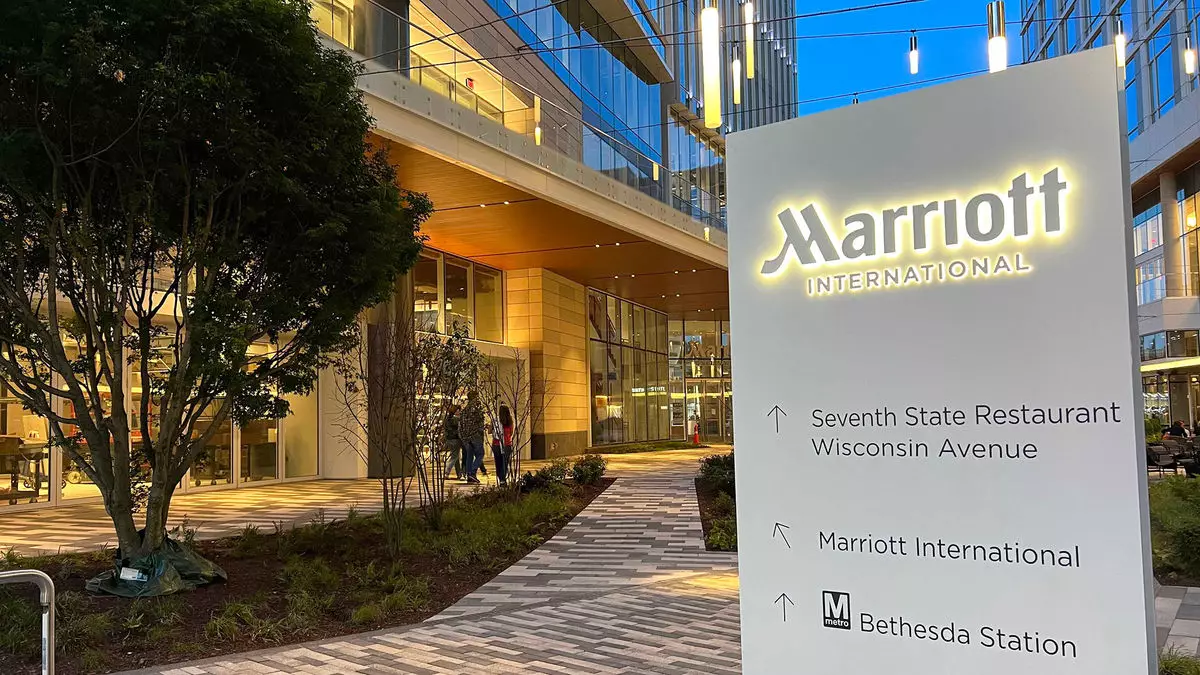In the context of fluctuating geopolitical dynamics, Marriott International has robustly reaffirmed its position in the hospitality sector during its Q4 earnings call. CFO Leeny Oberg addressed the apprehensions surrounding a potential decline in inbound travel from Canada and Mexico, primarily as a result of economic frictions associated with the Trump administration. Recent developments saw President Trump postpone his tariff threats against these neighboring countries—a decision tied to enhanced border security measures. However, Oberg’s assertion that it is “too soon to say we’re seeing anything of note” suggests a level of optimism, particularly as Canadian and Mexican visitors account for a mere 1% to 2% of Marriott’s U.S. room nights.
The potential repercussions of a 10% decrease in Canadian travelers, as estimated by the U.S. Travel Association, underscore the significance of these markets, with projections estimating a loss of 2 million visits and $2.1 billion in revenues. The heightened nationalistic sentiment in Canada was starkly visible when sports fans expressed their discontent with the U.S. by booing the national anthem during hockey and basketball games—a reflection of the palpable tension stemming from trade disputes.
Despite these external pressures, Marriott showcased robust growth in its financial performance for the fourth quarter, recording a global revenue per available room (RevPAR) uptick of 5%. Factors contributing to this increase included a 3% rise in average daily rates (ADR) and a subtle improvement in occupancy rates. Notably, RevPAR in the U.S. and Canada surged over 4%, bolstered by stronger-than-anticipated demand surrounding the November presidential election. Marriott CEO Anthony Capuano noted this resilience, showcasing the company’s ability to thrive even in uncertain atmospheres.
Moreover, Marriott’s financial metrics reflected a total revenue of $6.4 billion, up 5% year-over-year, with operating income rising significantly to $752 million from $718 million previously. This resilience can be interpreted as a testament to the company’s strong brand loyalty and effective pricing strategies in an ever-competitive market.
Looking forward, Marriott is poised to undertake a substantial digital transformation initiative, a move Capuano describes as a multi-year endeavor aimed at fortifying the company’s market position. With expectations of “higher than historical investment in technology” set to roll out, over half of these resources will focus on enhancing Marriott’s property management, reservations, and loyalty systems. In a landscape where technology increasingly dictates consumer experiences, this strategic pivot is not only timely but crucial.
Capuano elaborated on the anticipated enhancements across various service offerings beyond accommodation, including food, beverages, and recreational activities. Streamlining the integration of these services into a cohesive reservations platform is expected to present meaningful revenue opportunities. This approach reflects a shift towards providing a more holistic and seamless customer experience, aligning with evolving consumer preferences in the hospitality sector.
Marriott’s ambitions extend to its owned and leased portfolio, particularly evident in the strategic renovation efforts at the Elegant Hotels resort in Barbados, acquired in 2020. Oberg indicated that while some improvements commenced last year, a significant segment of the enhancements will wrap up by 2025. The company anticipates eventually selling these renovated properties, contingent upon long-term contracts to maintain operational control.
The marked interest from investors in the all-inclusive sector is a potential boon for Marriott as it prepares to capitalize on this lucrative market upon conclusion of renovations. This strategic foresight is indicative of Marriott’s adaptive approach to ownership dynamics and market demand—elements fundamental to sustaining growth in its luxury and resort segments, which have thrived with a 6% RevPAR enhancement in Q4.
Marriott International is navigating complex economic landscapes with a multi-layered strategy that balances immediate responses to external pressures while investing in digital transformation for scalable long-term growth. With a strong financial foundation and strategic initiatives underway, Marriott seems well-positioned to enhance its competitive edge and capital wishes in an evolving marketplace.


Leave a Reply